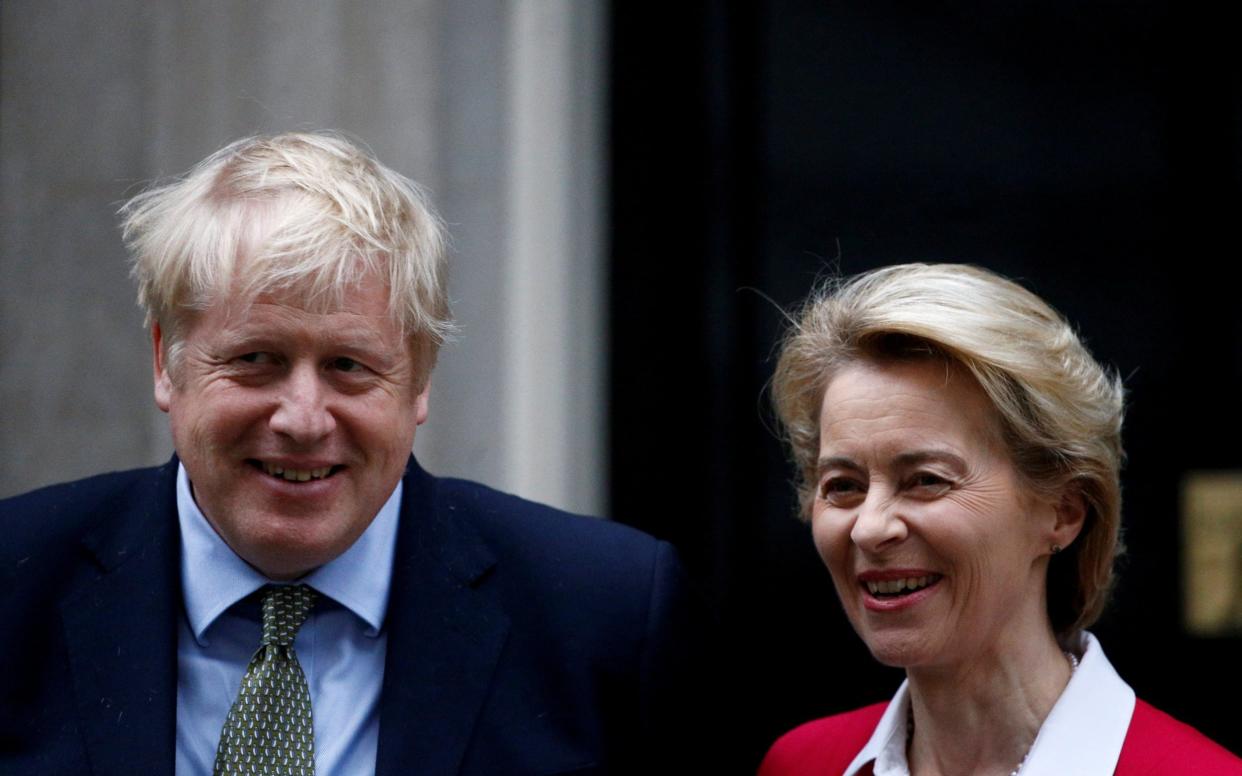Brexit on January 1 'whatever happens', Boris Johnson to insist

Boris Johnson is to warn Ursula von der Leyen that the UK will be ready to become fully independent on January 1, 2021 "whatever happens", as he urges the EU to agree a trade deal by the end of the summer.
In a video conference on Monday, the Prime Minister is expected to insist that the Government will be willing and able to end the post-Brexit transition period without an agreement with the EU, if Brussels fails to agree terms that ministers can accept.
Monday's talks, which UK officials hope will "push the negotiations forward", come after Michael Gove gave the EU formal notice that Britain would not request an extension of the transition period beyond the end of the year to buy more time for the talks.
The video conference will include Charles Michel, the European Council president, and David Sassoli, the president of the European Parliament, while Mr Johnson will be joined by Mr Gove and David Frost, his chief negotiator.
Mr Johnson is expected to call for a speedy conclusion to the negotiations, insisting that businesses and members of the public need certainty by the autumn. The two sides have reached an impasse over fishing rights and the EU's demands for the UK to agree to abide by a "level playing field" of rules and standards in perpetuity.
Failure to strike a trade deal by the end of the year will mean the UK and EU trading on less lucrative World Trade Organisation terms and with tariffs on goods. Both sides have now agreed to intensify talks next month, with meetings planned for London and Brussels.
On Saturday, a British official also disputed claims by Michael Barnier, the EU's chief negotiator, that the UK wanted to enter intensive "tunnel" negotiations — Brussels jargon for secret talks carried out under media blackout and without regular briefings of EU ambassadors.
But a Government official said: "The EU was a little slow to agree to an intensified timetable for talks, and has been making noises about so-called tunnels. That’s not something we ever wanted and it’s welcome that they’ve now signed up to a sensible process to take the talks forward.
"The High Level Meeting was always envisaged as a moment to push the negotiations forward. We now need to get this resolved and deliver certainty for businesses at home and in the EU as soon as possible.
"There’s a high quality FTA to be done, based on the agreements the EU has already reached with other countries. But, whatever happens, we will be ready for January 1, when we will be back in control of our laws, borders and money."
Meanwhile, polling of so-called Red Wall seats in the Midlands and the North found that half of people in those battleground constituencies believe the transition period should end on December 31 or sooner, compared to 42 per cent who said it should be extended. The Savanta ComRes polling was carried out for the new Centre for Brexit Policy, whose chairman, Owen Paterson, said: "We must honour the trust that voters placed in our party, many of whom had never previously voted Conservative.”

